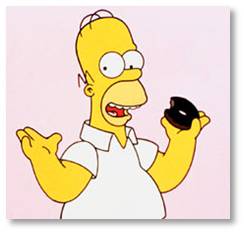From The Next Phase Blog
One of the members of my SpaceCrafts writer’s group recently asked us a question: “What are your suggestions for finding your ‘creative place’ when you sit down to write? It elicited a variety of answers that I want to share because they might help other writers who struggle with the same issue. Many people have told me that they have “always wanted to write a book” but they just can’t find the time. That’s no surprise: we’re all busy and finding time for anything is a challenge. Here are some writing tips that will help you to find your creative place, get started writing, and keep on going.
Set a Focus
You can find time to write or make time to write but focus works better than just expecting the creative writing muse to arrive on her own schedule. Calliope is fickle and not to be trusted. Part of this discipline is physical: schedule your writing time and make sure that you’re sitting in front of the computer when you’re supposed to be there. Part of it is mental: create the intention to write and reinforce it daily. Here are some ways you can do that:
-

Getty Image Meditate: At a specific time each day, sit down and clear your mind. Focus on your breathing. This is much more difficult than it sounds because your mind wants to be busy. It likes being in charge and resists being told that it has nothing to do for the next 30 minutes. So it will keep throwing thoughts at you. Meditation is the process of clearing those thoughts away and returning to a focus on your breathing.
I meditate every morning and, in the process, set an intention for the day. If your intention is to spend a certain amount of time writing, you have already prepped your brain for the activity. You brain will like this because the intention gives it something to do and it will get to work when you’re ready—and sometimes even before then.
- Avoid distractions: You know what I mean. Facebook, Twitter, LinkedIn, email, Pinterest, texts, the book club book, errands—anything that will seem more interesting and/or important than writing. If you get sucked into this time sink before you start writing, you may look up and find that half your writing time is gone with nothing productive to show for it. I sometimes wish I had a computer dedicated to writing with no other programs on it. But I know that my other computer, the one with all the distractions, would also be calling out for me to check in. A writer can run but not hide.
- Clear everything: Failing a second computer, close all the programs on the one you use to write except for the ones you programs for writing or for research on the writing. Shut down email, Facebook, Twitter, LinkedIn, Pinterest, YouTube, etc. That way you can’t just click over and get lost. It will help you focus on the one task at hand, which is writing.
 Set a timer: This works for some people but not for me because it would make me feel constrained and stressed. It’s like going on a diet and immediately getting a craving for something you don’t normally eat or even want. (Chocolate doughnut!) A timer does work for some people, however. You can try it and see if it works for you.
Set a timer: This works for some people but not for me because it would make me feel constrained and stressed. It’s like going on a diet and immediately getting a craving for something you don’t normally eat or even want. (Chocolate doughnut!) A timer does work for some people, however. You can try it and see if it works for you.- Reward yourself. When you have written for the specified amount of time, or filled the requisite number of pages, take a break and give yourself a small reward: reading a few chapters of a book, drinking a cup of coffee, doing some gardening, working through yoga stretches. Have a piece of chocolate or a beer (but just one!). Do whatever floats your boat and makes you feel good about yourself. You’ve earned it. Enjoy.
Just Write
Getting started each day is usually the hardest part. There are so many distractions to lure you away and destroy your focus. These steps will help.
- Write every day: Form the habit of putting words down on “paper” every day. That way you will get accustomed to doing it and writing will feel like a normal part of your day. After a while, the habit will take hold and you won’t feel right if you don’t write.
- Take notes: When you’re into the story your characters will begin talking to you. You don’t want to lose those valuable dialogues. Also, you will notice things around you that stimulate descriptions or even whole scenes. Sights, smells, tastes, sounds, snippets of overheard conversations, all provide fodder for your writing. If you have nimble thumbs and a smart phone you can jot down notes so you don’t lose those observations. If not, keep a note pad and pen handy.
- Read over and edit what you have already written. This refreshes your memory of the story so far and gets you into the story so that you can continue it. Tweak a sentence here, delete a few words there, rewrite an awkward phrase after that. By the time you get to the end, your brain will be in the game and it will be easy to keep going. Adding just one more sentence will lead to the next, etc.
- Download any notes that you may have taken about the story, plot, characters, motivation, etc. Put them at the end of the file or in a separate notes file and erase them when they are added to the story. Typing the notes will also get you into the story and percolate some ideas about where the information fits and how it will make the story better.
Clear Your Head
When you are stumped by what to say next or what a character will do next, don’t sit and stare at the screen. That just makes you feel dull and stupid. The best thing is to take your mind off the problem and free up your subconscious to jump in. Get up, step away from the desk, and do something else.
- Take a walk; this frees up your mind to be creative. Use the walk to focus or meditate on the different things that can happen in the scene. By the time you get home, the sentences will flood out of you and onto the page.
- Do a household task. It’s amazing what putting in a load of laundry or emptying the dishwasher can do for creativity. I have had whole scenes just stream into my head while in the laundry room. (Maybe I should write in there.)
- S
 wim if you can. Swimming is great for creativity because it turns you horizontal and suspends you between two mediums, air and water. If you’re doing laps, your brain has nothing to do but count them and that frees it up to wander, drift, roam, ponder “what if” and come up with new ideas without interrupting anything it considers more important. It’s hard to take notes in the pool, though, so you need to write your ideas down as soon as you hit the locker room.
wim if you can. Swimming is great for creativity because it turns you horizontal and suspends you between two mediums, air and water. If you’re doing laps, your brain has nothing to do but count them and that frees it up to wander, drift, roam, ponder “what if” and come up with new ideas without interrupting anything it considers more important. It’s hard to take notes in the pool, though, so you need to write your ideas down as soon as you hit the locker room. - Forget perfection. This is, in some ways, the most important point I can make. No one writes a perfect draft the first time. Or even the perfect first sentence. The truth is that writers create multiple drafts. You can go over your work once, twice, or many times until you’re happy with it. You can rewrite that first sentence over and over if you like. Just put some words down and then keep going. Perfection is a pipe dream.
I hope you have found these tips for finding your creative place helpful. You can also read my previous post on Seven Ways to Become a Writer for additional information. Now go write your own story.
